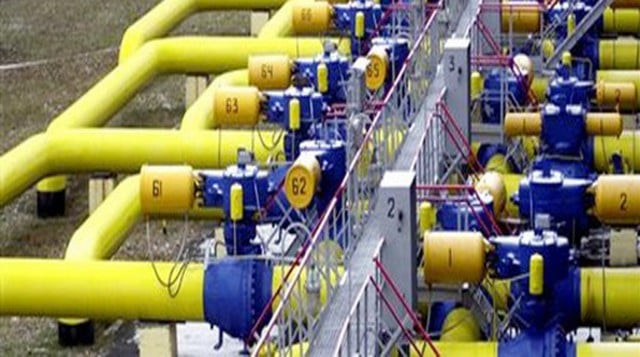Energy crisis: Ministry backtracks on offshore LNG terminal
Senator Asim Hussain softens some measures announced by the prime minister on the eve of his appointment.

A month after the government announced its support for an offshore import terminal for liquefied natural gas, the newly appointed Adviser to Prime Minister on Petroleum Senator Asim Hussain on Monday ruled out gas import through a deep sea terminal.
The senator was holding his first press conference after taking charge of the petroleum ministry, where he addressed the sudden flurry of activity that took place on Sunday night, shortly before he formally came into office, in which Prime Minister Yousaf Raza Gilani sought to radically revamp the energy sector.
The minister backtracked on several of the agenda items announced by the prime
minister, clarifying, for instance, that the six-month moratorium on new gas connections applied to commercial and industrial entities, not domestic consumers.
The government’s sudden backtracking on the LNG issue calls into question the various feasibility studies that the petroleum ministry had commissioned on the subject. Petroleum Secretary Imtiaz Kazi and the board of directors of the Sui Southern Gas Company had approved the offshore plan last month.
“The project of importing the LNG through an offshore terminal is not feasible,” said Hussain, adding, “Pakistan will sink if the government fails to initiate the LNG import process within the next four months.”
Pakistan’s energy shortage has caused a severe economic crisis in the country, lowering output and adding to unemployment. The country currently faces a shortage of between 800 million to 1,000 million cubic feet per day (mmcfd) of gas and over 3,000 megawatts of electricity.
The government has been trying since February 2009 to import the equivalent of 500 mmcfg in LNG, but has been constantly delayed. The petroleum ministry announced on March 12 that it would pursue an offshore import terminal after an onshore project was struck down by the Supreme Court. The ministry argued that the offshore option would begin supplying gas eight months faster and would be more cost effective in the long run.
People in the LNG business seem to prefer an onshore option, saying that it will have greater capacity and will be cheaper to set up.
Firing energy company managers
The government also appeared to be backtracking from its decision on Sunday night to remove the managing directors of all state-owned oil and gas companies from their jobs, even as Senator Hussain admitted his own mistakes in appointing some of those people during his first tenure as petroleum adviser.
“All of the incompetent managing directors have failed to deliver,” said the senator, adding, “I am responsible for the appointments of a few of the incompetent MDs.”
However, he said that only those who had reached retirement age would leave their positions immediately, and would be replaced by their second-in-command. In case their deputies were not available for the position, “the incumbents” would continue while their replacements were recruited through national and international advertisements.
The senator also announced that the government would soon announce a policy allowing the exploration of gas fields that are expected to yield around 400 mmcfd over the next three years. He also hinted that the government may once again try to deregulate energy prices, saying that the national exchequer cannot continue to afford subsidies on fuel.
Published in The Express Tribune, April 19th, 2011.



















COMMENTS
Comments are moderated and generally will be posted if they are on-topic and not abusive.
For more information, please see our Comments FAQ